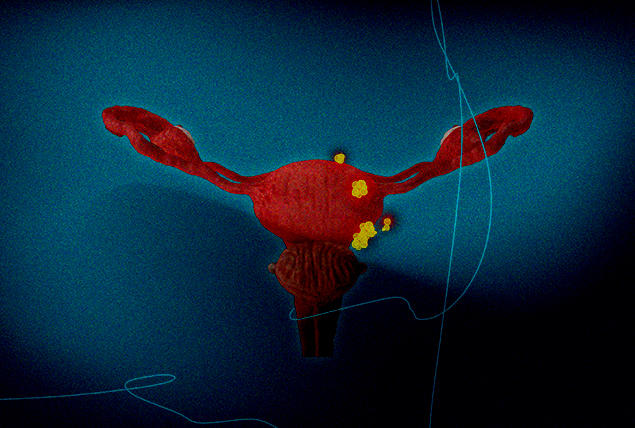Understanding the Different Types of Bladder Cancer and the Treatments

When cancer cells form in your bladder, treatment depends on how advanced the cancer is. The treating physician evaluates the tests previously done and assesses the best way to proceed. If bladder cancer is not treated, it can spread to other parts of the body. In the meantime, there are some characteristic symptoms and health complications.
"Bladder cancer causes blood in the urine and urinary symptoms. It can also obstruct the ureters, impacting kidney function," said Shawn Dason, M.D., a urologic oncologist and an assistant professor of urology at Ohio State University.
The most common treatments used for bladder cancer may include:
- Chemotherapy
- Surgery
- Immunotherapy
- Radiation therapy
- Intravenous treatment
Your treatment team
Healthcare professionals who can provide you with treatment options include oncologists (physicians who treat cancer) and urologists (physicians who specialize in the urinary system and male reproductive system).
Depending on the type of treatment, you may be treated by a radiation oncology specialist as well. Your healthcare team may include other providers, such as a primary care physician, nurses, psychologists, social workers, nutritionists and physician assistants.
Considerations your physician raises
If your doctors find the cells in your bladder are growing out of control (making it difficult for your bladder to work), they can evaluate how advanced the cancer is to establish the type of treatment. Usually, bladder cancer starts in the inner layer and spreads through the bladder wall. It is more difficult to treat when it has spread farther.
Before treatment, three categories of bladder cancer are considered:
- Non-muscle-invasive bladder cancer. Formerly called "superficial" bladder cancer, non-muscle-invasive bladder cancer refers to cancer that has not penetrated the deeper muscle layer of the bladder wall, Dason said.
- Muscle-invasive bladder cancer. This type has penetrated the deeper layer of the bladder wall and is more likely to spread (metastasize).
- Metastatic bladder cancer. This is cancer that has spread outside the bladder to other organs or distant lymph nodes, Dason said.
Treatment for non-muscle-invasive bladder cancer
When cancer is detected at an early stage, treatment usually involves an endoscopic procedure to scrape the tumor out with an instrument that has a camera attached, Dason explained. In these cases, most of the time, bladder cancer patients can recover while preserving their bladder.
"This may be followed by medications that go in the bladder to reduce the risk the tumor comes back and ongoing surveillance with cystoscopies," Dason said.
These treatments affect the cancer cells inside the bladder and stimulate the immune system. The medications can reduce the risk of the cancer coming back, but are used only when the cancer is not invasive.
Treatment for muscle-invasive bladder cancer
In cases where bladder cancer is more invasive, after penetrating the bladder wall, the surgeon may perform a surgical intervention.
"Treatment of these is often more intensive, involving bladder removal," Dason added. "This is often preceded by chemotherapy."
Depending on the consideration of the treatment team, they can proceed to remove a part of the bladder (partial cystectomy) or the whole organ (radical cystectomy). When only a part is removed, you are able to retain urine and then urinate, although in smaller volumes than previously.
In case of a total bladder removal, the physician analyzes the best options to create a urinary diversion system, where urine is stored and released in a new, timely and safe way. Depending on the type of diversion, there are different devices with urine collection bags and tubes.
"Some patients can be candidates for bladder sparing with chemotherapy and radiation," Dason explained, adding that postoperative surveillance is important because this cancer is more likely to come back in the lymph nodes or other organs, which may require further therapy.
Treatment for metastatic bladder cancer
Metastasis occurs when cancer cells spread to other parts of your body.
"For the most part, this type of bladder cancer is controlled with medications, like chemotherapy or immunotherapy. These treatments will, hopefully, slow the disease but are often not curative," Dason said.
Immunotherapy can be used in different ways. This treatment stimulates your immune system and can be administered in a vein or directly into the bladder, helping you to attack the cancer cells.
Chemotherapy supports the body in killing the cancer cells or stopping them from dividing through medication. These drugs are given in cycles of treatment and rest.
In the early stages, chemotherapy often is used to shrink the tumor and kill any cancer cells that remain after surgery. However, in more advanced stages of cancer when it has spread to other parts of the body, chemo is employed as the main treatment.
Complications with bladder cancer
When diagnosed early, bladder cancer can be cured before it affects other organs.
"[However,] sometimes patients will also have symptoms of their bladder cancer having spread to other organs, like symptoms in the lung, liver or elsewhere," Dason said.
Some complications caused by the disease or treatments may include:
- Infertility. This occurs when parts of the urinary system are removed along with the reproductive system in advanced bladder cancers.
- Depression. There is an emotional impact due to the diagnosis and the side effects of treatment.
- Sexual dysfunction. A woman's vagina can narrow and shorten with cystectomy, leading to painful sex. Meanwhile, in men, there may be problems maintaining erections and ejaculating. Women and men may have low libido.
- Menopause. Women may experience early and premature menopause due to surgery involving the reproductive system.
- Urinary diversion. This technique creates changes in the way of urinating.
- Recurrence or relapse cancer. Bladder cancer may return after treatment.
- Spread. Not all cancers of this type spread. However, some of the areas where they commonly spread include the lungs, bones, liver and lymph nodes in the pelvis.
Can bladder cancer be prevented?
Although not everyone can evade bladder cancer, some people may be able to prevent it by changing certain environmental factors or their lifestyle. In other words, you can reduce risks by taking certain measures:
- Cigarette smoking. "Bladder cancer is very preventable. The biggest thing is to avoid smoking as that's the biggest bladder cancer risk factor," Dason said.
- Substance exposure. People exposed to certain chemicals have an increased risk of bladder cancer, too. Dason explained: "Occupational hazards like exposure to chemicals or dyes can also do it, so practicing good occupational safety is important."
- Healthy eating. This aspect is essential to boost your wellness. Taking care of yourself with a proper nutrition plan can help you reduce risks. "A diet high in fruit and vegetables and fluid intake is likely also protective," Dason said.
Is it related to genes?
Having family members with a history of bladder cancer is a risk factor. However, it is not the only factor doctors take into account based on statistics.
"There is a genetic component to some bladder cancers, but most cases relate to smoking and other environmental exposures," Dason said.
Not everyone exposed to environmental factors will develop bladder cancer, although they are at increased risk.
Dason explained: "Some patients will also be more susceptible to these things based on their genes."


















